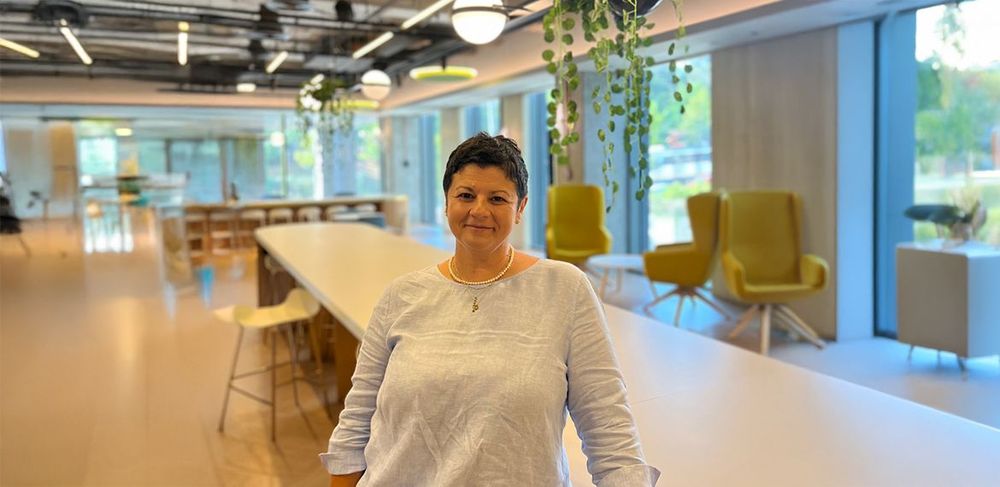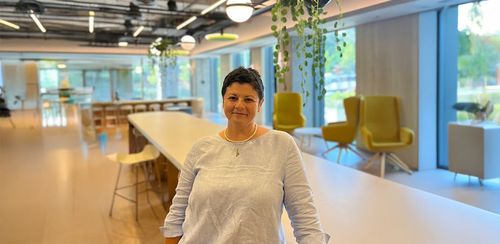

Gen Z & Millennials: Pioneers of a New Way of Working – Interview with Mădălina Rădulescu

18 February, 2025
Share this article
Table of Contents
In a world that’s constantly evolving, the way new generations approach work has become a major topic of interest and debate. Millennials and Gen Z bring a fresh, innovative perspective to the workplace, redefining traditional norms and adapting quickly to new technologies.
These generations prioritize flexibility, work-life balance, and value a work environment that fosters collaboration and personal growth.
I explore the distinctive characteristics of how these generations work and their impact on the future of the workplace in an interview with my dear friend, Mădălina Rădulescu—mentor, and an internationally certified coach by the International Coaching Federation & the European Mentoring and Coaching Council.
She’s the perfect person to talk to about such a relevant topic 😊 Mădălina believes in the incredible power people have to create change. She helps bridge the gap between personal values, thoughts, and actions, and their impact on teams, companies, and communities. Through her work with Fun Training, she frequently tackles themes like cohesion and collaboration, feedback, and leadership in companies of all sizes and across different cultures.
How Can Companies Stay Agile and Adapt Quickly to the Way New Generations Work?
Adaptation comes naturally in an agile, ever-changing environment. And that’s exactly why how you communicate and adjust workflows is extremely important. A philosophy that could guide this adjustment is one that combines a practical approach (the quality of processes, workflows, and procedures) with an interpersonal one (the quality of relationships). This means that workflows should be constantly reviewed and adjusted if they no longer align with internal and external realities. This requires ongoing efforts to develop receptiveness to feedback within organizations and to find the optimal balance between different generational preferences.
For example, how do you harmonize: Baby Boomers & Gen X – who value stability and clear hierarchy, with Millennials – who seek flexibility and growth opportunities, and with Gen Z – who prioritize work-life balance, authenticity, technology, and fast feedback?
Organizational agility depends on the ability to quickly integrate employee feedback and adjust work strategies without affecting performance. To meet the evolving demands of the market, companies need to create flexible structures, encourage fast decision-making, and invest in technology that supports effective collaboration.
What Are the Key Characteristics of Gen Z in the Workplace? What Motivates Them, and What Do They Expect from a Job?
We often talk about generational characteristics, but I like to call them “generational biases.” While I understand the need for classification, I’ve realized that over time, these labels tend to lead to broad, generalized conclusions.
What we observe is that Gen Z is a “digital-native” generation, and it’s important to engage with them with patience and curiosity. They seem to have “high” expectations from employers—or maybe just different ones, without being overly specific. They seek transparency and a less formal work environment, and they emphasize diversity and inclusion. Their motivation tends to revolve around flexibility (in schedule, location, and work style), authenticity, a participative leadership style, fast-emerging opportunities, technology, feedback—especially positive feedback—and appreciation.
Let’s not forget that Gen Z has grown up in a world of accelerated social and technological change, which has deeply shaped their attitude toward work. They are the first generation born in the digital era and expect the workplace to be just as dynamic and adaptable as the technology they use daily. However, that doesn’t always mean their expectations align with reality.
Additionally, for Gen Z, work-life balance is non-negotiable. Unlike previous generations, who felt the need to “prove” their loyalty to a company, these young professionals won’t hesitate to leave a job if their needs aren’t met or their expectations aren’t fulfilled. They’ve grown up with complete freedom of expression, and for them, the question “why?” is more about curiosity than defiance. Their tolerance for rules—especially those that seem illogical to them—appears to be quite low.
What Are the Most Common Mistakes Employers Make When Trying to Attract and Retain Gen Z Talent?
When it comes to decision-makers, I think the biggest mistake is not accepting that the new generation is different—and forgetting that every new generation has always been different from the ones before it.
I believe it’s in young people’s “job description” to be different, bold, and curious. To ask why. To have doubts and to “know everything” because they don’t yet know what they know and what they don’t. To have big egos—because appearances might matter more to them at this stage. To look for shortcuts around rules. To not yet fully understand what work is and why it matters.
Another mistake I see is the gap between the story told to attract them to an organization and the reality they find once they’re hired. Many companies still haven’t transitioned from “What do we do with them?” to “What do we do together?” This focus on “What do we do with them?” creates unnecessary pressure, fuels a false problem, and doesn’t foster a collaborative environment.
Bureaucratic structures, long procedures, and rigid rules can be discouraging if they’re not explained in a way that makes sense to them. And too often, the mistake is assuming “There’s no time for that” or “They’ll figure it out”—only to be disappointed later by how they figured it out.
How Can Managers Bridge Generational Gaps and Create a Collaborative Work Environment?
The first step is for managers to be aware of their own professional and personal development needs and to recognize that, whether they like it or not, their behavior directly impacts the team. A key aspect is diversifying leadership styles. Younger generations no longer respond well to rigid hierarchical structures; they prefer leaders who act as mentors and facilitators of their professional growth. This requires ATTENTION and PATIENCE.
Next, managers should remember that they are not alone in this equation—they have a team of adults working alongside them. (I mention this because I often hear managers referring to their younger colleagues as “my kids”). Context matters, and in Romanian, we have the word “colleague”. Perhaps replacing “these kids” with something more inclusive would be a good idea.
While I understand the emotional aspect and the need for connection, such language can create a sense of dependency. The diversity of experience and age within a team creates excellent opportunities for two-way mentoring—senior employees bring experience, while junior employees offer fresh perspectives and digital skills.
As a manager, you are responsible for results, and those results come when your team operates efficiently. By efficient, I mean finding the right relational dynamics and the optimal allocation of skills and resources. A critical factor is clear and flexible communication—avoiding rigid jargon, encouraging open idea-sharing, clarifying expectations in 1:1 discussions, and using diverse communication channels. Some generations prefer emails, while others favor instant messaging. Striking a balance between these preferences can reduce friction and improve collaboration.
How Can Coaching Help Managers Better Understand and Lead Teams with Gen Z Employees?
Coaching helps managers develop critical thinking, become aware of alternative perspectives, find solutions, build empathy, provide constructive feedback, and create trust-based relationships. It also enables them to adjust their leadership style to be more collaborative and focused on individual growth.
The coaching process itself is relational yet goal-oriented, where the coach often acts as a dialogue partner who can shape the manager’s behavior. This aligns with the concept of “the manager as a coach”, helping leaders cultivate skills that support both team development and organizational success.
What Skills Should Managers Develop to Communicate Effectively and Motivate Gen Z Employees?
I don’t believe the necessary skills are any different from those required for managing other generations. These include active listening, communication, feedback, creative and practical thinking, and the ability to adapt leadership styles to both people and situations within the team.
Ideally, managers should focus on clarity and conciseness in communication, the ability to build trust-based relationships, openness to innovation and change, and the skill to foster a collaborative work environment.
At the core of all this is reflective practice—the ability to pause and analyze one’s own thinking and actions, to become aware of personal limitations and biases, but also to recognize and strengthen constructive behaviors.
Interviews
Keep up to date with our most recent articles, events and all that Pluria has to offer you.
By subscribing to the newsletter you agree with the privacy policy.
The way we work has suffered dramatic changes in the past several years and, as a consequence, so did employee perks and benefits. Thinking beyond the traditional benefits package has become a necessity for [...]
04 December, 2023

A paper published in 2020 by the Harvard Business Review stated that productivity is closely related to the way teams are managed by their leaders. And the pandemic challenged managers to develop leadership[...]
04 December, 2023

Personally, during these last years I’ve been working mainly remotely & hybrid. This experience has taught me to constantly look for new methods to manage the projects, to communicate with the teams inv[...]
11 December, 2023